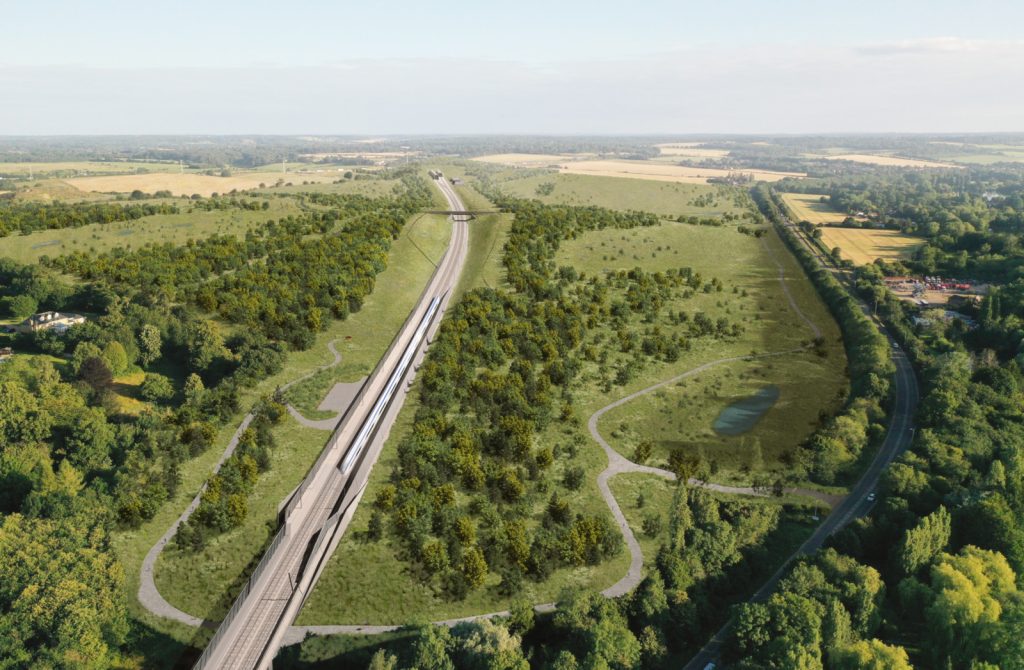Low profitability of HS2 after cancellation of the northern UK section. The cancellation of the northern sections of the HS2 project in the UK will result in “very poor value for money” for the project, say British MPs. HS2’s low profitability.

A recent report by the UK’s Public Accounts Committee says the government is unlikely to attract enough private investment to build a new key station at Euston, according to the BBC. The Department for Transport disagreed with the report and said HS2 would be built “at the lowest reasonable cost”. This report comes as a separate analysis suggests that major infrastructure projects in the UK are too expensive and take too long.
In October, the prime minister announced that parts of the high-speed rail line linking the West Midlands to Manchester and the East Midlands (towards Leeds) would be cancelled because of rising costs. Prime Minister Rishi Sunak also said that the HS2 station at London Euston will only be built if private investment is secured. The new report from the House of Commons Public Accounts Committee (PAC) raises questions about the impact of these decisions. It says there are “many uncertainties” in the government’s assessment that it would be better to complete phase 1 of the project rather than cancel the entire high-speed rail programme.
HS2’s low profitability
It also says that the government “has accepted” that a delivery of phase 1 to Birmingham “will not be cost-effective because the total costs significantly outweigh its benefits”.
HS2 Ltd chief executive Sir Jon Thompson, who has led the project since Mark Thurston stepped down as chief executive in September, recently warned that the estimated cost of Phase 1 has soared to GBP 66.6bn, against a budget of GBP 44.6bn using 2019 prices.
The Department for Transport has told MPs on the committee examining the project that it is still better to complete Phase 1 as this will avoid the estimated GBP 11bn cost of cancelling it.
But the report said: ‘The PAC has been left with little reassurance on the calculations and is calling for a clear summary of the benefits of Phase 1’.
Dame Meg Hillier, who chairs the committee, said: HS2 is the biggest ticket, by value, on the government’s books for infrastructure projects.”
“But here we are, after more than a decade of warnings from us about HS2’s management and spiralling costs, locked into the costly completion of a narrow project and with many unanswered questions and risks still attached to the delivery of even this narrow project.”
Government at odds with MPs
A Department for Transport spokesman said: We disagree with the committee’s assessment. Their estimated figure for the estimated cost of Phase 1 does not reflect either our decision to secure private funding for Euston or our direction not to proceed beyond the Midlands.”
They added that plans for Euston station have already received extensive private sector support for investment, providing a similar regeneration opportunity to that seen in the Battersea area of London around Nine Elms station.
“The permanent secretary has already written to the chairman of the committee setting out his assessment of value for money and we have repeatedly made it clear that we will continue to deliver HS2 at the lowest reasonable cost in a way that delivers value for taxpayers,” they added.
The document also questions how land that is no longer needed will be disposed of and how other rail projects dependent on the cancelled phases will be affected.
Given rising prices, MPs also called on the government and HS2 to focus on controlling costs.
A spokesman for HS2 Ltd said: We have been clear about our cost challenges, which have been compounded by significant levels of inflation.”
“HS2 Ltd is now under new leadership and is implementing changes to the programme with the aim of controlling costs and learning the lessons of the past.”
This comes as a separate analysis by the Boston Consulting Group’s Centre for Growth suggests that infrastructure projects in the UK are often too expensive and take too long to deliver.
It analysed data from 2,300 infrastructure projects, from rail and road projects to school and hospital construction in 16 countries over the past two decades.
It found that an average cost per unit for both road and rail projects was higher than in similar countries, including France, Germany, Australia and the United States.
More than three quarters of UK rail projects surveyed were over budget and more than half were delivered late – although these levels of overrun were common in other countries too.
Measures that could help address these problems include updating the planning system and addressing how risks are measured and managed on large projects.
Share on:



